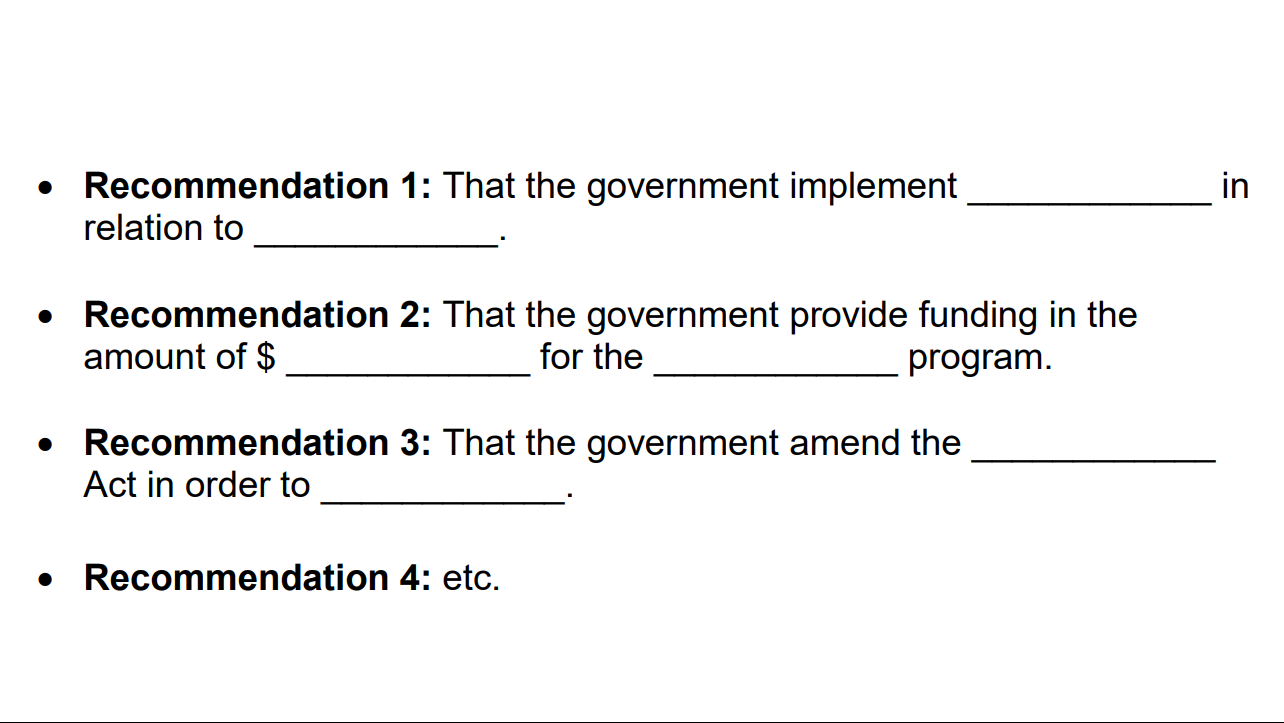Committees of the House of Commons are working groups created by the House of Commons made up of a small number of selected Members of Parliament (MPs) or MPs and senators (joint committees) who study issues relating to the committee’s mandate or referred to them by the House of Commons in greater depth and report back to the House. They execute a large portion of parliamentary work.
More: All committees’ studies, activities and reports
Who can appear before a committee?
Committees regularly invite private citizens, experts, representatives of organizations, public servants and Ministers to appear before them in order to elicit information (receive evidence) relevant to the study under consideration. These consultations allow witnesses to set out and clarify their points of view, which are often presented in a written brief, and give MPs the opportunity to ask questions.
Witnesses generally appear during public proceedings; however, committees may decide to hear witnesses in private (in camera) if the situation warrants such action.
Committee members provide to the clerk of the committee their lists of suggested witnesses. Committees then select witnesses based largely on the type of study and the amount of time available.
The clerk of the committee then contacts the selected witnesses to invite them to appear in person or virtually, and to establish the date and time of their appearance. Once witnesses have accepted the committee’s invitation to appear, a confirmation form must be completed and returned to the clerk as quickly as possible.
If a witness declines an invitation to appear, a committee may issue a summons to that witness, should the circumstances so require.
How to request to appear before a committee
Any citizen or organization interested in sharing their opinion in person or by videoconference regarding a study being carried out by a committee may request to appear before it by sending an email to the committee clerk.
The individual or organization must indicate in the email their specific interest and area of expertise in relation to the study. The clerk will then forward the request to appear to the committee members. The committee will evaluate the requests and draw up the list of witnesses, based on committee practice. It is important to communicate your interest as quickly as possible, because committees typically establish the list of witnesses at the start of their study.
Witnesses appearing before a committee, in person or by videoconference, are also encouraged, but not required, to submit a brief in support of their presentation.



Leave a comment
All comments are reviewed prior to appearing on the site.
Rules: